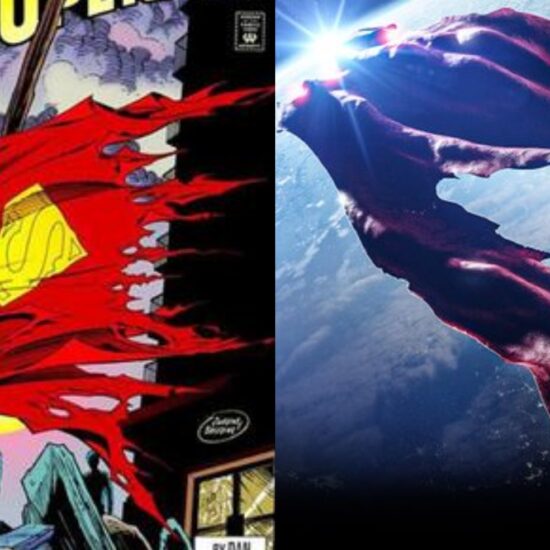
While the police force faces a massive task of image rehabilitation on screen, these are unexpectedly rich times at the movies for anyone with a firefighter fetish. After an unsurprisingly long wait for one film featuring a team of strapping laddermen in sensual dance formations, two have come along at once. Taking the queer emergency service of “Titane” to a lighter, sweeter, more playful and more pornographic place, João Pedro Rodrigues’ delicious one-off “Will-o’-the-Wisp” lives up to the flighty, elusive promise of its title, teasing its viewers in more ways than one: with a titillating parade of bare male bodies in balletic motion, and with hints of thematic import beyond that leading erotic spectacle.
Climate-change anxiety, republican politics and colonialist history are all woven into this shoestring-budgeted lo-fi sci-fi musical romance, despite a scant 67-minute runtime that scarcely has room for half its fizzing, flung-about ideas. Still, Rodrigues doesn’t want to get too intellectual about it all: Rampantly horny and unapologetically silly, “Will-o’-the-Wisp” appeals to more primal desires and thought processes in its audience, even as it repurposes a Greta Thunberg speech or references the racially charged work of 18th-century Portuguese painter José Conrado Roza. Slighter and even less classifiable than Rodrigues’ 2016 breakthrough feature “The Ornithologist,” this Cannes Directors’ Fortnight premiere will nonetheless be hotly coveted by LGBTQ festival programmers and distributors, not least for the full-frontal fiesta that’ll prevent wider arthouse crossover.
The decades-spanning but threadbare narrative begins, with what turns out to be a certain puerile appropriateness, in the year 2069, as the elderly King Alfredo of Portugal (Joel Branco) withers away on an austere deathbed in his cavernous palace. His young great-nephew (Vasco Redondo) plays idly beside him with a toy firetruck; his highness, it turns out, has no issue of his own. We’ll surmise why soon enough, as the action rewinds to 2011. Early-twentysomething Alfredo (now played by Mauro Costa) is an ingenuous princeling with a toned, twiggy physique and a halo of blond curls; he has no head for politics, though he takes to heart his father’s plea to protect the “royal pines” of Portugal’s hallowed Buçaco Forest. A few years later, with wildfires sweeping the country — as they did, to headline-making effect, in 2017 — art history student Alfredo honors that promise by announcing his intent to become a fireman.
His mother is aghast at the idea of the future king taking such a job; his father, more supportively describing them as “generals of peace,” encourages Alfredo to use his status to jump a few rungs on the fire services ladder. But the lad wants to begin, so to speak, at the bottom. After being reluctantly admitted by a butch, bullying female commander (Claudia Jardim, a hoot), Alfredo finds an immediate ally in experienced Black fireman Afonso (André Cabral), who shows him the ropes — and plenty more besides — in a station where every male employee just happens to be a lithe, jockstrap-sporting Adonis. As a unit, they appear to spend more time on Caravaggio-inspired choreography than on dousing any flames; needless to say, sparks fly between Alfredo and Afonso, and it’s not long before they’re sliding down each other’s poles in one explicitly tender al-fresco scene. “How can we defend the forest if it’s not an object of desire?” Afonso asks. Well, quite.
The erotic idyll cannot last, however, as royal duty beckons Alfredo away from his true calling, the anticlimactic tragedy of which rather underlines “Will-o’-the-Wisp’s” distinctly skeptical attitude toward such archaic, aristocratic class structures. There’s little doubt here that Alfredo is more useful in his chosen vocation — even amid all the terpsichorean distraction — than in his inherited one, where his lofty family members fret emptily about natural disasters while making no more than a token effort to combat them. (His word-perfect recitation of Thunberg’s famous “how dare you” address falls on deaf ears, as his mother instead makes a symbolic effort to snuff out dining-hall candles.)
Afonso, too, mocks the naive prince’s attempts at self-redemption: “He believes revenge on his colonialist ancestors comes from giving his ass to Black guys,” he jokes. As with many of the film’s most filthily irreverent quips and visual jokes, it’s underpinned by caustic truth: “Will-o’-the-Wisp” takes aim throughout at the sanitization of sexual expression and political conflict that passes for politesse in the upper classes, a suppression that can flip right back into active homophobia and racism when challenged a little.
But Rodrigues, ever mirthful and sensually restless, never lingers long enough on such sentiments for a screed to take shape, seducing us instead with the supple, smoke-veiled moves of Rui Poças’ camerawork, an eclectic, on-shuffle soundtrack of Mozart and tingling Portuguese pop, and the fleshly gifts of the cast on generous, sometimes gawk-worthy display. Such fleeting physical pleasures are how we get through a world that’s irretrievably on fire, after all; even with a hose in its hand, “Will-o’-the-Wisp” takes the same shrugging attitude.













